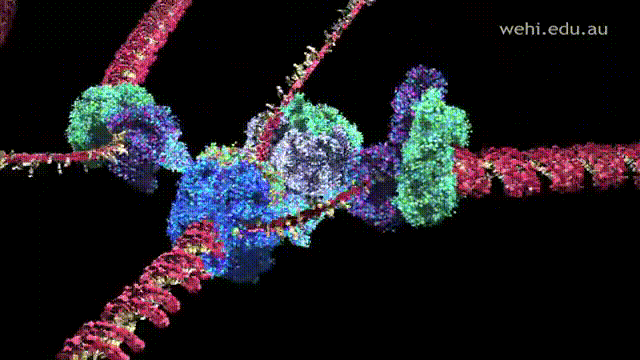19 september 2020
today i (re)learned various scientific attempts to explain consciousness. here's a gif of dna being created and also a ted talk by david chalmers.

in the ted talk, chalmers summarizes consciousness research from the last 30 years. there are "easy" questions around consciousness (which parts of the brain are correlated with our conscious sensations like taste, touch, etc) and then there's the "hard problem of consciousness", which chalmers coined, and that's the million dollar question: why? why do we have subjective experience at all?
is there a scientific, brain-based, materialist theory of consciousness? can consciousness be explained by psychology which is then in turn explained by biology which is then in turn explained by chemistry which is then in turn explained by physics and the most fundamental laws of the universe? doesn't seem so. so chalmers presents a couple options:
- consciousness is a folk theory. if you're a functionalist like dan dennett, you don't need to be concerned about consciousness. qualia is such a messy concept, it's all an illusion. understand the functions of the brain, its inputs/outputs(behaviors), and you've solved everything about the mind. this is a "purely reductionist brain-based theory of consciousness."
- consciousness is fundamental. consciousness is not able to be explained by the existing fundamentals (space, time, mass, charge). so maybe consciousness is a fundamental building block of science. and we can do more science to figure out the fundamental laws that govern consciousness.
- panpsychism -- consciousness is universal. every system is conscious, and this is compatible with science/physics because it is baked into the physical world. in fact, consciousness can explain why physics happens. many cultures already do believe that all of nature is conscious. maybe we can also correlate consciousness with information-processing. wherever there's information integrating happening, there's consciousness, and there's a spectrum of consciousness. but what does it mean for all systems have consciousness -- can China have consciousness? during the discussion, dan mentioned the tiny protein synthesis chains -- it's really hard to deny their aliveness. i think i see he's talking about in my mind's eye with the proteins looking like little humans walking along tracks but i can't seem to find it.
as an aside, i like dan dennett's definition of postmodernism -- "there are no truths, only interpretation." also i think of reduction as "explaining away"